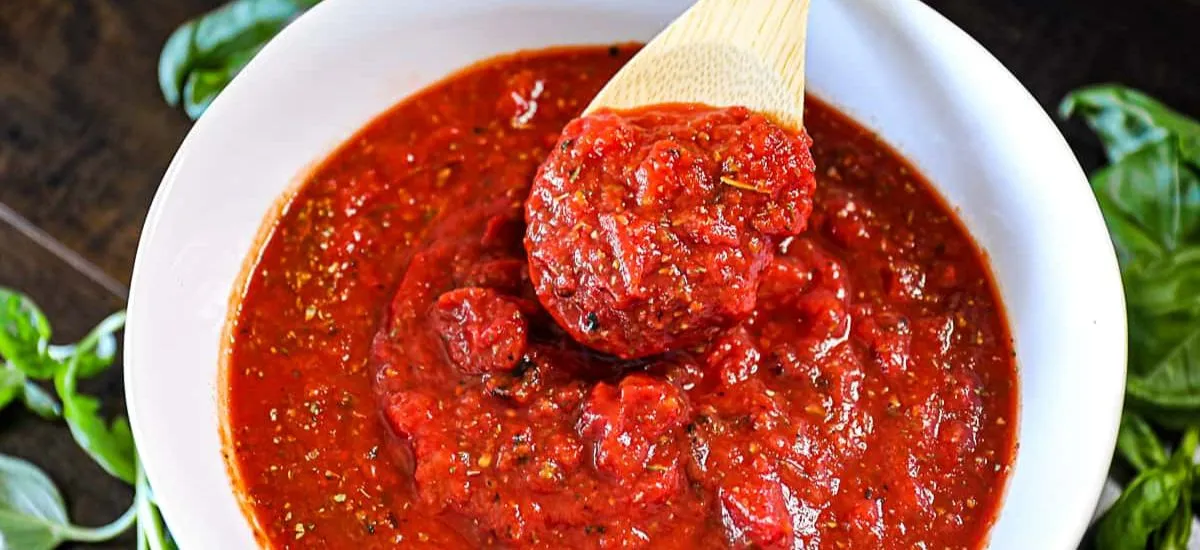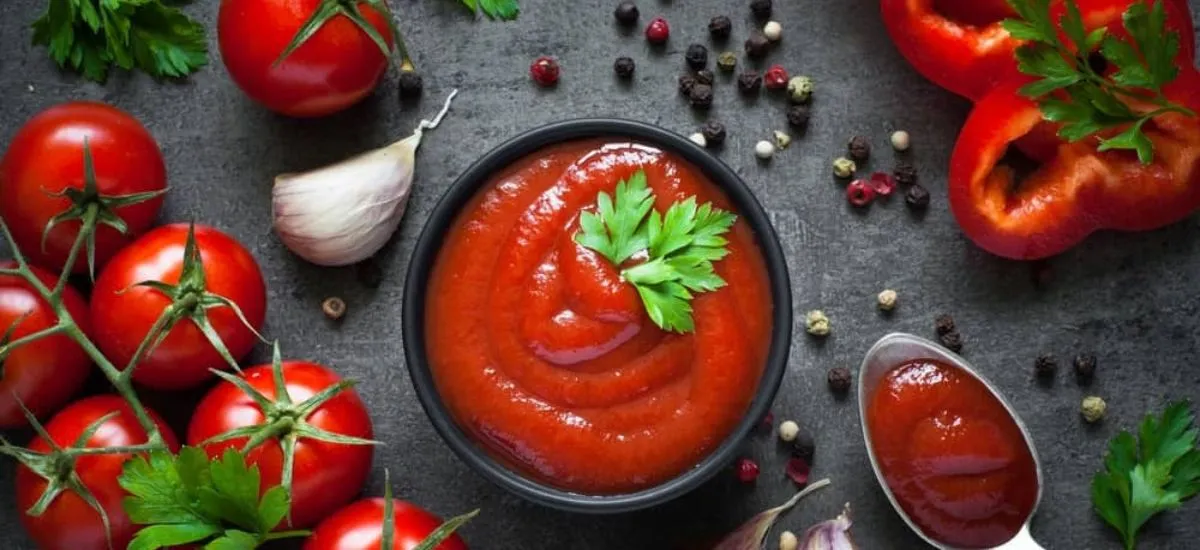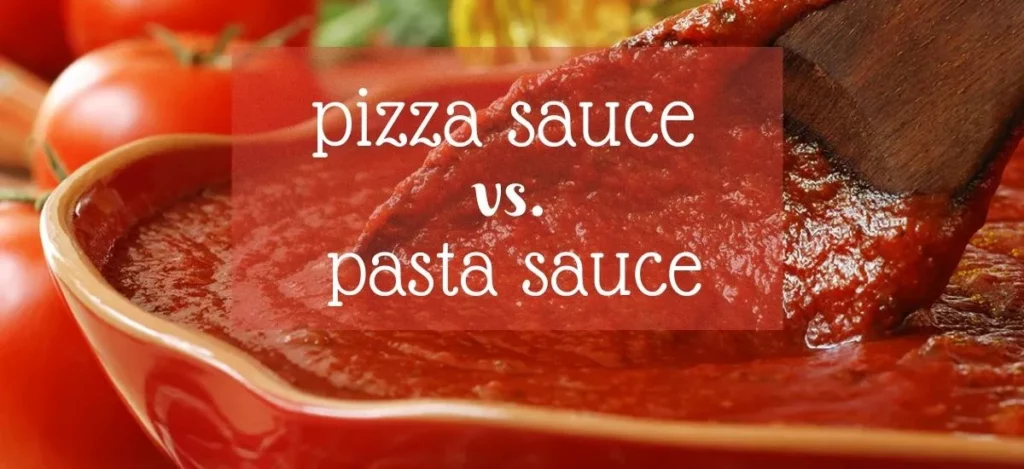Pizza Sauce and pasta Sauce are Two of the world’s most popular foods. The sauces used to prepare these wonderful dishes are quite similar. Both are red, and the primary component in both is tomato. So, they are identical, correct? Well, perhaps not.
Pizza sauce versus pasta sauce. Pizza sauce is prepared with uncooked tomatoes, but pasta sauce is prepared with cooked tomatoes. Extra ingredients, such as garlic and herbs, are cooked with pasta sauce. The pizza sauce is heated together with the toppings.
Typically, both pizza sauce and pasta sauce are made with canned tomatoes. Because it is difficult to obtain fresh, high-quality tomatoes throughout the year.
They require a great deal of sunlight, after all. And boiling your tomatoes is generally considered unnecessary when canned tomatoes taste so delicious.
You may believe that all canned tomatoes are created equally, but this is false. Pre-chopped and processed plum tomatoes are often lower quality and cannot be sold whole.
The highest-grade tomatoes are whole plum tomatoes. They are all heated during the canning process and are therefore effectively partially cooked.
Is Pasta Sauce The Same As Pizza Sauce?
No, tomato sauce and pizza sauce are not identical. However, they are comparable. The primary distinction between pasta sauce and pizza sauce is that pasta sauce is cooked during preparation, but pizza sauce is an uncooked tomato sauce that cooks with the pizza.
One major distinction between the two tomato-based sauces is their distinct preparation procedures. Pasta sauce from a jar is cooked (often slow-roasted), whereas pizza sauce is uncooked and made by blending ingredients for hours.

What Is Pizza Sauce Called?
Typically, pizza sauce is not cooked to preserve its flavor. The base of an excellent pizza is tangy; sweet tomato sauce spread over freshly baked dough. Many Italian pizzas, such as the Margherita, marinara, and others, feature few high-quality ingredients.
When the sauce is placed on top of the pizza, it is baked in the oven. Cooking the sauce first would amount to cooking it twice. If you reduced the sauce first, you would lose this raw, tangy flavor and have a more concentrated flavor. It could get very thick or even brown and burnt on top.
Difference Between Pizza Sauce And Pasta Sauce?
- Pizza sauce is a raw tomato sauce, whereas pasta sauce is a cooked tomato sauce. This may not seem significant, yet it can make a significant difference.
- The greatest pizza sauce consists of puréed tomatoes seasoned with salt, pepper, and perhaps a dash of garlic, oregano, balsamic vinegar, or red wine vinegar.
- Pizza sauce is uncooked because it produces a better-tasting pizza; it imparts a zesty tomato taste long after the pizza has been baked in a hot oven.
- In contrast, pasta sauce is slowly simmering. It typically contains other herbs, such as basil or bay leaf. The cooked sauce will be sweeter, richer, and more robust in flavor.
- Since the noodles are already cooked when thrown in the sauce, it’s convenient that the sauce’s flavor has already been established. Pasta sauce may also be chunkier and less smooth than pizza sauce, as it is not usually puréed.

In Tabular Form
| Basis of diff | Pizza sauce | Pasta sauce |
| Ingredients | Pizza sauce is more on the plain side. Tomato paste and tomato puree are combined with pepper, garlic, oregano, wine vinegar, olive oil, and salt in bottled pizza sauces. | There are more ingredients in jarred pasta sauce besides chopped tomatoes, garlic, onion powder, black pepper, and salt. Your spaghetti sauce could contain ground beef, sausage, and more spices. |
| Preparation | The pizza sauce in a jar is baked alongside the pizza dough in the oven. The result is a pizza with fresh tomato flavors when removed from the oven. | However, you will pour the pasta sauce over the cooked pasta and let the flavors permeate the strands. |
| Consistency | Pizza sauce is more substantial than pasta sauce. The consistency of each sauce has a purpose. If you topped your pizza crust with a watery sauce, it would turn soggy while it cooks in the oven. And everyone enjoys a crispy pizza crust. | Regarding the pasta sauce, it must be slightly runny. It makes logical to use a thin sauce for spaghetti or noodles. The light sauce distributes swiftly throughout the pasta, creating tasty and silky strands. Pasta that sticks is the worst! |
Frequently Asked Questions
Q1. Can you substitute pasta sauce for pizza sauce?
Yes, pasta sauce may be substituted for pizza sauce with some modifications. You must minimize the surplus water (you can sieve) for a richer sauce and cook it for longer. Pass the chunky spaghetti sauce through a food processor or blender to achieve a smooth consistency.
Q2. What is the difference between spaghetti sauce and pizza sauce?
Pizza sauce uses uncooked tomato puree, whereas pasta sauce is produced with cooked tomato puree, garlic, herbs, and spices. Whether you want to operate a pizza restaurant or make personal pizzas, most chefs will tell you that the sauce is the key.
Q3. Substitutes for pizza sauce?
- Other tomato-based sauces
- Tapenade
- Pesto
- Extra-Virgin Olive Oil
- Alfredo
Read More:
